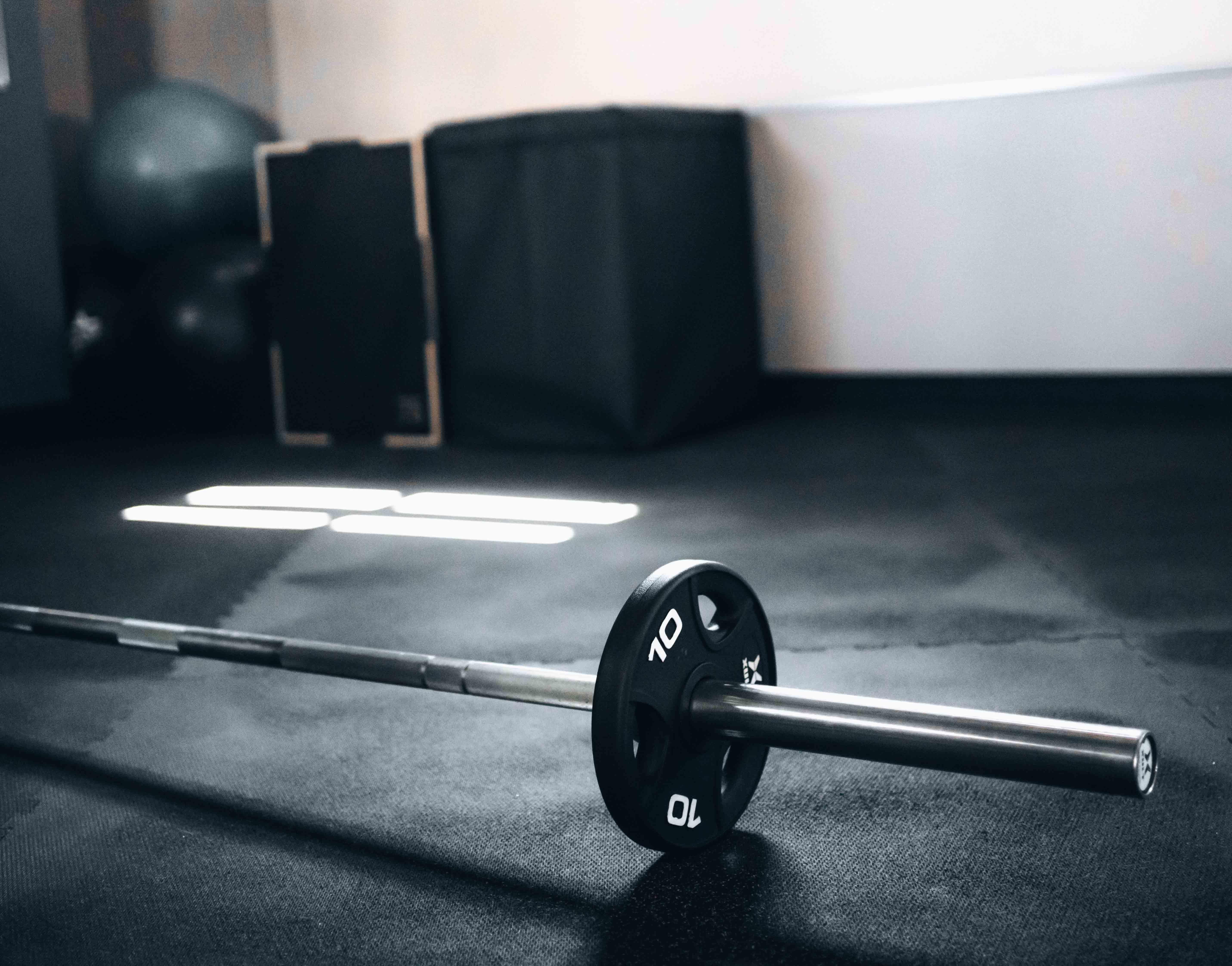Longer days. More sunshine. Extra time outdoors. These are just a few of summer’s many perks. But there’s one potential downside: Some research shows that testosterone levels may drop as the temperature rises.
This can be concerning because when a guy’s testosterone dips, everything takes a hit — draining power, dulling libido, and eroding strength faster than you think.
Still, the research is mixed and far from straightforward. A 2021 study in Journal Watch found that testosterone levels were highest in fall and winter and lowest in spring and summer. A 2022 study of about 8,000 men ages 20-70 showed slightly different results — testosterone was highest in August through October and lowest in March.
Conversely, a 2023 study examined a sample of men living in Miami and Pittsburgh. Researchers found a difference in testosterone between the two climates, but the season had no meaningful impact on the men’s levels.
Why the conflicting results? “Testosterone is a highly dynamic hormone, influenced by everything from stress and sleep to diet, body fat, and environmental toxin exposure,” explains Lifeforce Clinician Heather Kannheiser, MSN, FNP-C. “With so many moving parts and no consistent testing protocols, it’s easy to see why the research appears mixed even when there are valid trends underneath.”
Our experts uncover the truth behind hormone fluctuations, and spill the tea on what’s really impacting your T.
 The True Culprit Behind Seasonal Testosterone Dips
The True Culprit Behind Seasonal Testosterone Dips
As the seasons change, so do your daily habits. “It’s not necessarily the season that’s affecting your hormones, but how you live during that season. Lifestyle plays a major role in hormonal regulation, and even small shifts can contribute to noticeable changes in testosterone,” Kannheiser says. “During summer, people often prioritize leisure over routine. Sleep becomes irregular, alcohol intake increases, and exercise and meal prep may fall by the wayside. When fall arrives, many people return to more consistent schedules: getting back to the gym, cooking more at home, and sleeping better, which are all habits that support healthy testosterone levels.”
Among her patients, Lifeforce Clinician Rachael Duran, FNP-C, notices a subtle uptick in testosterone levels in the late summer into fall — roughly August through October. “During this time, people are often more active, exposed to natural light, and structured after summer chaos,” she says. “Dips are more common in late winter and spring, when routines are frayed and the nervous system is typically more depleted.”
Still, when it comes to hormones, timing isn’t everything. “While seasonal habits may nudge hormone levels up or down temporarily, they pale in comparison to the deeper, systemic forces that influence testosterone production and signaling long-term,” Kannheiser says.
Duran seconds this. She says, “Seasonality is a small piece of a much bigger hormonal jigsaw puzzle.” Other vital pieces include chronic stress and nervous system dysregulation, inadequate rest and recovery, insulin resistance and metabolic dysfunction, and endocrine-disrupting environmental toxins found in plastics, pesticides, and heavy metals. According to both experts, all of these factors can interfere with testosterone production and secretion.
“We need to stop isolating testosterone as a biomarker and start viewing it as a thermometer of system harmony,” Duran says. “Seasonal variation exists, but it’s not just about sunlight and sweat. It’s about whether a person’s lifestyle, psychology, and environment are working with or against their physiology.”
 8 Lifestyle Shifts to Boost Testosterone This Summer and Beyond
8 Lifestyle Shifts to Boost Testosterone This Summer and Beyond
“Summer doesn’t need to derail your hormonal health, but it often does when structure and intention fall away,” Kannheiser says. “Testosterone thrives in a body that feels safe, rested, and well-nourished. The best way to support your levels year-round is by staying anchored in the fundamentals, especially when routine goes out the window.”
Keep your levels high with these tried-and-true testosterone-boosting strategies.
1. Sleep cool.
“You have to start with getting a good night’s sleep and following a circadian rhythm,” says Lifeforce Physician Russell Van Maele, DO. “This sounds so basic, but it is by far the most important way to optimize testosterone.”
Kannheiser notes that testosterone secretion is closely tied to deep, consistent sleep. Fragmented or insufficient rest cuts into the hormone’s natural production cycle. In the summer, sleep can be disrupted by higher temperatures. Duran suggests keeping your bedroom between 65 and 69 degrees at bedtime. You can also try cooling or temperature-regulating sheets.
2. Manage stress.
Dr. Van Maele cites mitigating stress as his number two non-negotiable after quality sleep. “Stress management isn’t optional,” agrees Kannheiser. “When the brain perceives a constant threat, hormone production is dialed down to conserve resources. Fight-or-flight is no place for testosterone to thrive. Breathwork, sunlight, nature exposure, and even time off screens can restore your body’s natural hormone rhythm.”
3. Limit alcohol.
“People tend to drink more in the summer during barbecues and boating activities,” Dr. Van Maele says. “Alcohol, especially if consumed before bed, will wreck your sleep, and this will certainly impede your recovery and decrease your chances of optimizing testosterone.” Alcohol can also disrupt liver metabolism and hormone signaling, which can contribute to lower T levels, according to Kannheiser.
Try trading your summer cocktail for a refreshing mocktail, non-alcoholic spritzer, low-sugar kombucha, or flavored sparkling water. Research shows that more and more people are embracing sober curiosity, so you’ll be in good company.
 4. Hit the weights.
4. Hit the weights.
“Lifting heavy weights signals your body to prioritize muscle-building and hormone-producing pathways,” Kannheiser explains. Research shows that resistance training can enhance the endocrine system’s ability to produce hormonal responses post-workout, which leads to higher testosterone levels over time. (Try these lower body moves and learn more lifting tips.)
Dr. Van Maele notes that people tend to do more strength training in the winter months, when they opt for the gym instead of exercising outside. This season, make sure you have a healthy balance of both. Or take the weights outside and do a lift session under the sun.
5. But be careful of overtraining.
Make sure to aside days in your schedule for active recovery activities like stretching, mobility, foam rolling, and slow walks. When it comes to exercise, “more is not always better,” Kannheiser warns. “High-intensity training without adequate rest can suppress testosterone in even the most disciplined athletes.”
6. Beat the heat.
“During the summer, excessive heat exposure, dehydration, and electrolyte loss can impair hormonal output, especially during prolonged outdoor activity,” Kannheiser says. Try these hot weather hacks to stay regulated, hydrated, and balanced this season.
 7. Test your T levels.
7. Test your T levels.
While lifestyle habits are essential for optimizing testosterone, sometimes you need more support. “Sometimes it is the hormone — and it needs to be addressed directly, with a bioindividualized medical approach that honors both data and lived experience,” Duran says.
The Lifeforce Diagnostic at-home blood test will give you a comprehensive view of your hormone levels, and you’ll work one-on-one with a Lifeforce clinician to make a personalized plan, which can include pharmaceutical and nutraceutical support and lifestyle strategies.
“If there’s one message I want to leave men with, it’s this: Don’t wait until you’re struggling. Get your levels checked: total and free testosterone, SHBG, LH, FSH, and more,” Kannheiser says. “Because when your hormones are in balance, everything else gets better — your energy, your productivity, your relationships, your confidence, your drive. And that’s not just health, that's freedom.”
8. Look at the full picture of your health.
Your Lifeforce team takes a holistic approach to your hormone health. In addition to optimizing your levels, “We care about how our patients are doing clinically,” Dr. Van Maele says.
“How is their energy? How is their libido? How is their confidence? Do they have brain fog? Are they able to put on muscle mass? These questions are best answered with a Lifeforce practitioner, and at the end of the day, they are the most important aspects of health,” Dr. Van Maele says. “If you are firing on all cylinders — whether it be in the summer or in the winter — we love that! And if you feel good, the labs will likely show it. Most of all, I hope everyone enjoys the rest of their summer and spends plenty of time being active and out in the sun with family and friends!”
This article was medically reviewed by:
Russell Van Maele, DO, ABIM Board Certified in Internal Medicine
Rachael Duran, MSN, FNP-C, Bioindividual and Pathway Medicine Clinician
Heather Kannheiser, MSN, FNP-C AANP, Board Certified Family Nurse Practitioner



